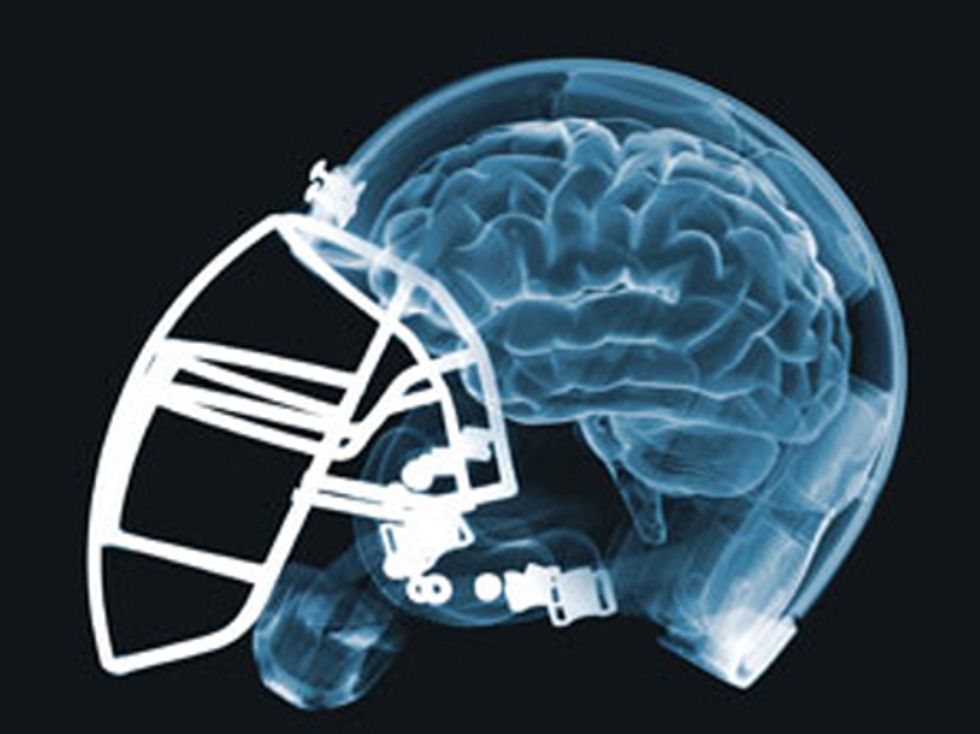Kosta Karageorge was found dead on Nov. 30 at 2:30 PM. His body was found in a dumpster a block away from the Kroger at 7th and High. Police confirmed the body was of Kosta, a 22 year-old senior at Ohio State, concluding the search that had been going on since he was reported missing Wednesday night. According to authorities, Kosta died from a self-inflicted gunshot wound. The gun used was found next to him in the dumpster.
Kosta was a student athlete at OSU - he wrestled for three years, and then walked onto the football team his senior year. Saturday, he was slated to be recognized during the Ohio State-MIchigan game, as it was Senior Day.
According to Kosta Karageorge's mother, he sent her a text message stating that he "needed to take a walk to clear his head" and that he apologized for any embarrassment he had caused her. Furthermore, according to Karageorge's mother, he stated in the text message that his past concussions had been affecting him greatly.
With a tragedy like this, it requires society to take a look at a major issue at hand: concussions. Officials at Ohio State, including the wrestling coach, claim that Karageorge had no reported incidents of concussions. Regardless of the whether Ohio State officials had documentation of Kosta's history of concussions, the result stays the same - he had them, and they obviously affected him.
Concussions used to be something that was an afterthought. Statements like "getting your bell rung" are slight euphemisms that downplay the danger of what concussions really are. They disrupt normal brain activity, and can have potentially leave permanent brain damage. Personally, I had a Grade 2 concussion in high school. I missed 5 weeks of my junior year of football, but my mind will never be the same. Junior year, I was pretty good at math. I wanted to be a biomedical engineer. Calculus wasn't too difficult to tackle. The concussion caused my brain to completely shift - now, I completely suck at math, even algebra. At the age of 20, I lose my train of thought more than my 57-year-old mother does. And that was after just ONE concussion.
With multiple concussions, Kosta Karageorge possibly developed what is known as Chronic Traumatic Encephalopathy (CTE). CTE can only be diagnosed after death, upon autopsy of the brain. Coroners have already ordered an autopsy of Karageorge's brain, and the results will be known soon. But if I were a betting man, I'd be willing to bet that the autopsy will confirm that Kosta did have CTE. CTE, due to it's degenerative nature, is typically found in athletes who have a long history of brain trauma, or concussions. CTE causes a slew of mental health issues, including confusion and depression. Many athletes, like Junior Seau, who have had this issue with CTE have unfortunately committed suicide.
A lot has been done in the field of neuroscience to research and combat concussions, but has it been enough? We know more about concussions now than we ever have, but it's still just scratching the surface. Football helmets are being continuous redesigned to mitigate the blunt force impact the heads within them take. High school football associations, the NCAA, and the NFL have all taken steps to reform not only how players can hit each other, but how players with concussions take the necessary steps to return to play.
But is that enough? There's still an underlying problem that can't be dealt with using reactionary measures: concussions aren't getting the full respect they deserve. If Kosta had so many concussions, why was he still playing any sport? There are so many cases of athletes who lie about having concussions so that they can play. They think it's no big deal. Even some coaches across America think concussions aren't that big of a deal. Sure, the player will only be out for a few weeks, it's not as bad as a broken arm right? Those could take months! WRONG. SO VERY WRONG. When you get a concussion, your brain literally gets damaged in some way. It might be slight, but it's still damage. And if people don't respect that these injuries will cause many mental health problems, then we can't truly reform the issue.
My opinion? There should be a three strike rule implemented, and three even seems a bit high to me. Three concussions in your lifetime, and you're done. If you get three in high school, no college ball. If you get two in high school and one in college, no pro ball. Because when you have guys like former Cleveland Browns player Brodney Pool who has had at least four concussions, they need to retire. Their personal health and safety is at risk. In an interview with NBC Sports, Pool claimed that they were just migraines, but they in fact were concussions. Athletes want to play no matter what, but there comes a time when you just have to stop. When I was playing football and received my concussion, my mother made it very clear to me that if I got a second one, I'd be done. It scared me to think about, but I ultimately realized that she was right. Fortunately I never incurred a second concussion, but the anecdote remains the same - concussions are the one of the most serious injuries, and should be treated as such by athletes, coaches, fans, and all of society.
When it comes to the tragic story of Kosta Karageorge, where was the cut off point? What could have been done to recognize his issue, and get him the help he needed? These are but a few questions that are popping up, and need to be addressed.



















